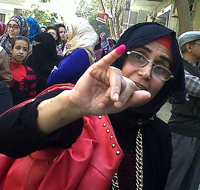Will the Arab Spring finally end the European Union’s lethargic approach to the southern Mediterranean and lead to more serious support for democratization? Don’t hold your breath. There are three key reasons why “business as usual” with only cosmetic changes is likely to remain the norm.
First and foremost is the fact that Europe is in deep economic and financial crisis. With growing discord between France, Britain and Germany, not only the future of the euro but the very foundations of the European Union are at stake. Consumed by its own existential crisis, a serious rethinking of foreign policy is obviously not a top priority for the EU at the moment.
The second reason why we should not expect Europe to seriously change its policy toward the southern Mediterranean is the success of Islamist parties in post-Arab Spring elections. For decades, Europe’s primary concern in the southern Mediterranean has been security and economic development. Anti-terrorism cooperation, border controls against immigration and economic assistance to corrupt but friendly authoritarian regimes were the hallmarks of a series of EU projects, ranging from the Barcelona Process (which became the Union for the Mediterranean in 2008) to the Euro-Mediterranean Partnership (EMP) and European Neighborhood Policy (ENP). This “security and development first” mindset came at the expense of genuine support for democratization in countries like Egypt, Algeria, Tunisia and Morocco.

